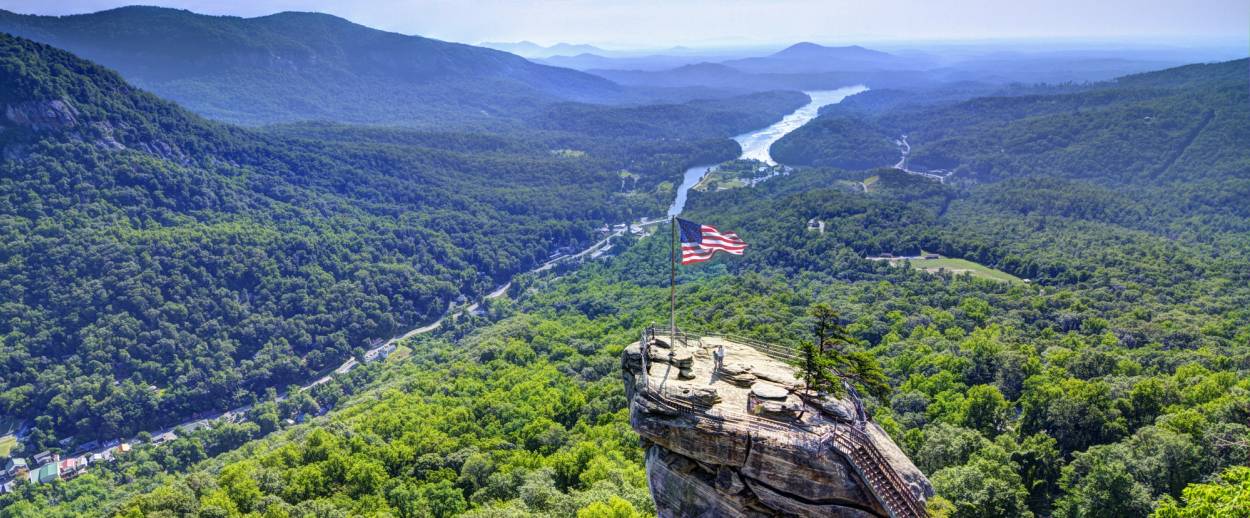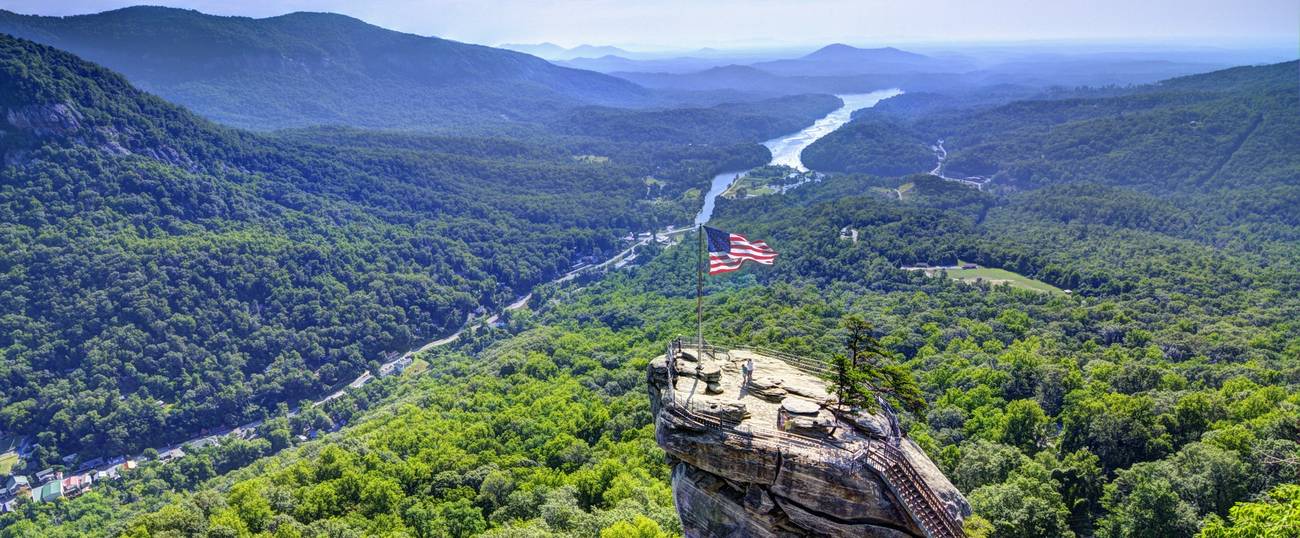Clarity, Away From the Fireworks
How the Fourth of July brought me closer to my Jewish identity and changed my understanding of America




This article was originally published on June 30, 2017:
We were mostly white, high-society kids in a racially segregated city, witnessing lavish displays of patriotism from privileged vantage points. In Washington, D.C., where I was born and raised, we rarely stayed in town for the summer. But when we did, on the Fourth of July we would go to a friend’s father’s office downtown before watching the wild display of fireworks. The office had wall-to-wall windows and we peered out at the parade from three stories above the streets and ate finger foods passed around by mostly black waiters.
I remember later joining the masses, spreading a blanket out on the National Mall. The neighborhood kids and I would lie down and watch the massive display of light. There were black kids in our neighborhood, and Iranian kids, but it was mostly just me and other white people on the Fourth of July. It didn’t matter that I was Jewish, or that my friend with the law-office-dad was half Mexican; we all just passed and paraded as white.
In my mid-20s, no longer in Washington, I discovered a deepening of my Jewish identity. While pursuing an MFA in writing at Naropa University in Boulder, Colorado, I studied Jewish mysticism and I found new entry points to the dry Conservative Judaism of my childhood. That was also the year I did research on my family’s arrival in America. I began to discover the depth of residual pain from World War II; the way marks of genocide and the systematic omission of more than half of my family had laced our affluent and seemingly perfect lives.
At this time I began to loathe the 4th and other national holidays that required feeling a sense of belonging in a landscape of American patriotism. I resented being asked to sit at the foot of fireworks and proclaim their glory; not because I wasn’t proud of the American fight for independence, and not because I didn’t know how to have fun or celebrate, but because I began to better understand group mentality, the formation of white supremacy, and the different mechanisms meant to disembody Jewish communities throughout history.
That was when fireworks began to really irk me.
John Adams was clear in his desire to celebrate American independence from Britain with a lavish display of “Pomp and Parade, with Shews, Games, Sports, Guns, Bells, Bonfires and Illuminations from one End of this Continent to the other from this Time forward forever more.” He said so in a letter to Abigail Adams on July 3, 1776. Fireworks, and the shooting of muskets, artillery, and other war or warlike mechanisms became patriotic displays.
“And the rocket’s red glare,” we sing, “The bombs bursting in air / Gave proof through the night / That our flag was still there …” In firework displays I no longer saw entertainment. I saw war, rightfully so, and I saw battle. I also saw collective consciousness development that normalized the blind worship of violence as the means of defending, building, and creating a nation. And I saw flag worship that asked citizens to ignore the hidden and bloody nuances of American history that included lynching, internment camps, slavery and more.
The deeper I went into emotional territory of my graduate research, firework displays began to leave me trembling, upset, and angry. One year on the Fourth of July, Selah Saterstrom, a writer, hoodoo priestess and one of my brilliant Naropa professors found me inexplicably crying near a field. It was where we all were laying out blankets in small racially homogeneous groups to watch fireworks against the backdrop of the mountains. I tried to explain and she seemed quickly to understand, told me it was OK to exit the scene, to go home, to stop participating. I needed someone’s permission to choose what was best for me, because it went against the dominant mentality I was taught to follow.
Another professor later told me about her son and how he couldn’t handle fireworks since serving in the army. She said he goes home when they have displays of fireworks and he hides, like a puppy, under the bed.
The next Fourth of July, I thought about what she said, about PTSD and about military veterans who saw real live bombs. I thought about the irony of celebrating war and victory and independence with fireworks. Every Fourth of July I wonder about the men and women who hide in bed to avoid the celebration of their navigating the terrain of war, of bombs, of killing.
After that summer in Colorado it became impossible to relax on the Fourth of July unless I was with spiritual community, off the grid, and not asked to be part of a patriotic war celebration. It isn’t that I don’t love and appreciate the America that raised me. I love a good barbecue as much as the next person. It is that I am viscerally trained to remember the cost of not thinking for myself, what it means to submit to dominant psychology, and how that is the very underpinning of fascist control. Historically the Jewish people, no matter how assimilated as we have become here in the United States, have been thrust from home, thrust from nation, thrust from origin. I am not awaiting that resurgence; I simply refuse to become part of an order that continues to perpetuate that same phenomenon in 2017.
This year for the Fourth of July I will be on Jewish retreat in upstate New York. I will spend my mornings learning about lay leadership and internal preservation and my afternoons learning Hebrew and pastoral counseling skills. I will be working hard to try and build myself as a human being and as an agent of resistance to dominant culture, indoctrination by fascist means, and brainwashing that teaches me to ignore immigration raids, sexist laws against my body, the systematic killing of black men nationwide and so much more. As a Jewish descendant of Holocaust survivors, it is my birthright to resist the development of white supremacy and to use Torah as an ancient tool to wield myself as an army of one in a sea of many.
Even without fireworks and barbecues, flags and eagles and beers and boats, this is the most American way I can think to celebrate Independence Day: exercising my freedom to freely study and practice my religion, enjoying the natural beauty of the mountains, and choosing to celebrate my rights as a citizen through action, thought, and change.
Merissa Nathan Gerson is a writer, sex educator, and rape prevention advocate. She teaches Alternative Journalism at Tulane University in New Orleans.